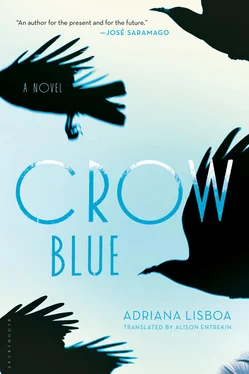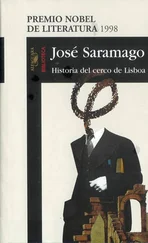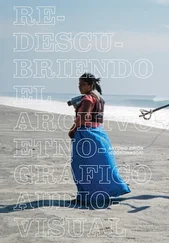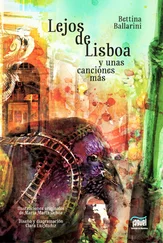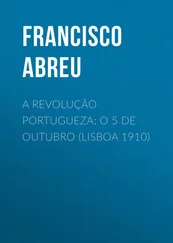Perhaps Fernando had heard, before me and somewhere else, my mother complaining about the smell of the nail polish, the smell of the fish and the price of things. Perhaps she had scolded him about leaving coffee cups around the house and perhaps he had scolded her for forgetting to give him a message. Perhaps they had both woken up several mornings not speaking to one another. Perhaps he had placed his finger lightly on Suzana’s neck to feel the blood pulsing there. Perhaps she had traced his eyebrows with her fingertips.
One day he told her about the past. About weapons. About Brasilia, Peking, the River of the Macaws. One day she told him about the past. About the lamb in the song. About her mother’s dolls. About the dead cat sprawled across the sidewalk.
One day she told him about her father and Texas, but only some of it. One day he told her about the girl he had met on the banks of the Araguaia, but only some of it. She told him that she had severed ties with her father and moved to the next state. Without a penny to her name. He told her that he had been fond of the girl who had fought beside him in the guerrilla war. Fernando knew how to make weapons. Suzana knew how to leave men. Fernando had studied at the Peking Military Academy. Suzana had donated her mother’s dolls to a Presbyterian orphanage in Dallas. Fernando had a letter from his guerrilla girlfriend, which he had kept almost by accident. Suzana had a photo of her mother. And one day they had lain down in bed with their memories, their ghosts, their deaths.
Do you promise? asked Suzana before she fell asleep.
Promise what? he asked.
Promise first and I’ll tell you afterwards.
I promise.
And she looked at the digital clock on the bedside table and saw that it was the next day.
Now tell me what I promised, said Fernando.
But she didn’t. She allowed her head to sink between two pillows and closed her burrow with the blanket and snuggled into sleep, into the happiness of sleep, into the inconsequence of sleep. And since Fernando never found out what he had promised, he had to improvise the keeping of the promise.
For this reason, and this reason alone, he stayed on in the United States when he and my mother broke up, a state’s distance away, where he could get in his car and drive for six hours to, for example, register as his daughter the daughter who wasn’t his. For this reason he was there every time she called him and left every time she asked him to. For this reason: for her.
And when she returned to Brazil he stayed put, according to the promise he had improvised and, improvising, kept.
He stayed put, like a property, a house, something that you don’t uproot and cart about, in your pocket, your suitcase, your backpack. A structure built on the earth, heavy, sealed, protected from the weather, prepared for the extreme cold and the extreme heat, capable of closing doors and windows to the wind, capable of closing curtains to the eyes of passersby.
In case she decided to return some day.
And every day that she didn’t decide to return was added to the previous day like a calendar that you put together yourself, to which you add pages, and suddenly he took it all and stashed it in the wooden El Coto de Rioja wine crate and put it at the back of the wardrobe and thought it no longer made any difference. Staying, leaving. It wasn’t an issue anymore.
Someone mentioned a position as a security guard at Denver Public Library, right in the center of town, that clean, airy, functional place where books were shelved, catalogued, where people went like informal pilgrims to consult or borrow the books. A security guard at a library felt like something of a formality to him. A position in the world that was mere protocol. He figured that libraries weren’t violent places, requiring security. He couldn’t imagine library-goers being thieves or attackers or troublemakers.
At the entrance was an inscription with the words of Jorge Luis Borges: I have always imagined Paradise as a kind of library . There should be no need for security guards in a place with such a paradisiacal statute.
But you never know.
The job was there. And Fernando was there to try and get the job.
Years later, as the red 1985 Saab convalesced in a mechanic’s workshop near Starkville, in Las Animas Country, almost on the Colorado-New Mexico border, Fernando asked me: do you want me to tell you the things I never told your mother?
I was quiet and listened. For a good while, I just listened. I never asked Fernando why he decided to talk that night. If he had decided to indemnify my mother for the things he hadn’t told her by telling her daughter.
Whatever his reason, the story that hadn’t been told started on the first anniversary of the Araguaia Guerrilla Movement.
The anaconda is the second-largest snake in the world. In the Amazon, it can reach twenty-six feet in length. People are afraid of the anaconda, but it avoids human beings. Most of the time.
Anaconda was the name of the operation that the army initiated in April of 1973. It was a plan to gather intelligence. Its objective wasn’t to launch offensives against the enemy, but espionage, using the same methods to infiltrate the population as the guerrillas had used.
In the three preceding months, the dictatorship had killed four members of the Brazilian Communist Party’s Central Committee in the cities. The dismantling of the party prevented new guerrilla reinforcements from being sent to the region.
Nevertheless, the atmosphere among the guerrillas was one of euphoria, and they wanted to believe that the inhabitants of the region would join the armed struggle. Their work with the local population continued. After several months, the guerrillas’ Military Commission managed to re-establish contact with Detachment C, the most deeply affected by Operation Parrot. After some restructuring and under the orders of a new commander, Detachment C, in its first raid on property, occupied the farm of a land-grabber and government informer. They confiscated a sum equal to that which the farmer had obtained selling the guerrillas’ possessions after one of their camps had been occupied by the army.
The threat of reprisal spread among the locals who had betrayed the guerrillas. One such local, Pedro Mineiro, was executed in his own home, after being judged by the Revolutionary Military Tribunal. Another peasant by the name of Osmar was also captured, judged and executed.
For a while, Chico’s hopes were renewed. It was hard not to take heart amidst the celebrations of the armed movement’s first anniversary. The locals helped out with clothes, shoes, food. They listened to Tirana Radio with the guerrillas, attended meetings, and eleven of them ended up joining the cause.
But the fear that you once felt is a vaccine in reverse: it predisposes you to illness. It waits, in ambush. Like an anaconda ready to devour its prey, ready to wrap around it and drag it to the river or, with scientific precision, squeeze it a little more every time it exhales, until it is no longer possible for it to fill its lungs with air. The anaconda has no venom. Its weapon is oppression.
In Operation Anaconda, there were explicit orders for there to be no military action. Unless they were lucky enough to find Osvaldão, the black giant who commanded Detachment B. The ophidian information network in the Araguaia region turned captains, lieutenants, soldiers and sergeants into rural workers, malaria control sprayers, tavern-goers, Land Reform Agency inspectors, traveling salesmen. But it wasn’t easy. The operation that should have taken two months took five.
In September, a group of guerrillas from Detachment A arrived at daybreak at a Military Police post on the Trans-Amazonian Highway. They surrounded it. After shouting for the soldiers to surrender, which they didn’t, the detachment commander ordered the guerrillas to open fire. The post went up in flames. The soldiers came out and surrendered. After being interrogated in their underwear and threatened with execution, they were evicted. The loot taken by the guerrillas included weapons, ammunition, uniforms and boots, and their success was recounted in a communiqué to the inhabitants of the region.
Читать дальше
